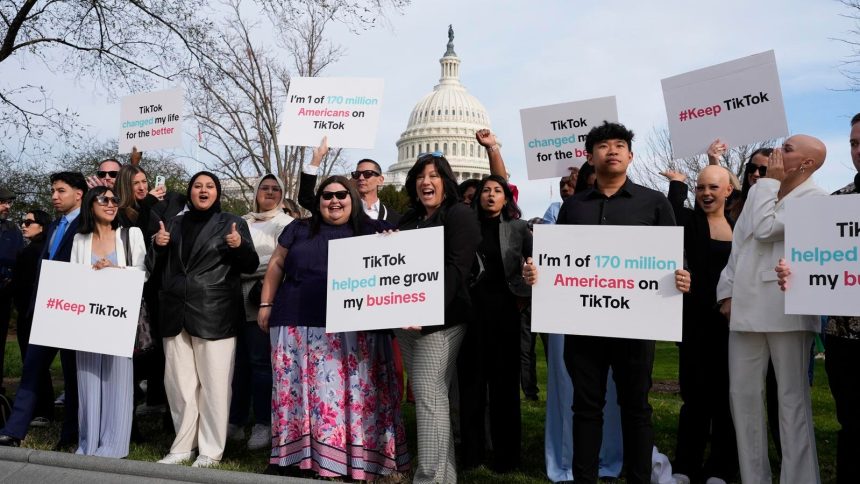A federal court is poised to make a significant decision regarding the future of TikTok in the United States, with a ruling expected within the week. Both TikTok and the federal government have petitioned for a decision by Friday due to a newly enacted law requiring the app to divest from its Chinese parent company, ByteDance, or face a ban from U.S. app stores by January 19. TikTok’s legal challenge centers on claims that the ban infringes upon its First Amendment rights. Notably, this lawsuit has been combined with a separate case involving TikTok creators, highlighting the broader implications of the ban on those who rely on the platform for their livelihoods.
TikTok’s legal arguments assert that being forced to divest from ByteDance is not only impractical but also detrimental to the company’s existence. The platform contends that such a requirement is “not possible technologically, commercially, or legally,” especially given the timeline set by the law. Moreover, TikTok argues that divesting would significantly diminish the company, effectively turning it into a “shell” of its former self. On the other hand, the Justice Department maintains that the ownership structure poses serious national security risks, although it has not publicly disclosed specific evidence leading to these claims, leaving the court filings heavily redacted.
The court’s leanings are still uncertain, though initial signals from oral arguments suggest skepticism toward TikTok’s position. Judges expressed confusion over how this legislation differs from other existing bans on foreign ownership, questioning whether a government could not enforce a ban against a foreign entity—even during times of conflict. There were indications that the court is taking the First Amendment concerns raised by creators into account, but legal experts predict that the court might still side with the government based on the overall tone of the arguments provided.
Should the court rule to uphold the ban, TikTok will have avenues to appeal to the Supreme Court, which could temporarily pause the enforcement to allow for further legal review. The specifics of how a ban would be executed remain unclear. The legislation would not require an immediate shutdown of TikTok’s operations but would prevent new downloads and updates from being available on platforms like Google and Apple. Furthermore, internet service providers would be barred from supporting the app, which could severely impact TikTok’s ability to function in the U.S., particularly concerning user data management and financial transactions.
Interestingly, the recent electoral success of Donald Trump complicates the landscape surrounding TikTok. Although he originally sought to ban the app during his presidency, recent developments suggest he has reversed his stance, influenced by his supporters’ activities on the platform and lobbying by a major investor in ByteDance. With Trump now poised to take office again, speculation abounds regarding how he might address the impending ban. Potential strategies include lobbying Congress for a repeal, instructing the Justice Department to halt enforcement, or issuing a proclamation of compliance regardless of actual divestment.
Public sentiment surrounding the TikTok ban has shifted dramatically, with surveys indicating a significant drop in support for such measures over recent months. A Pew Research poll highlighted that only 32% of Americans supported a TikTok ban as of mid-2023, down from 50% earlier in the year. This decline in backing reflects a growing recognition of TikTok’s widespread use, as the app boasts over 170 million users in the U.S., indicating its substantial cultural footprint. As the legal landscape evolves, and with federal inactions and bipartisan resistance to banning the app in focus, the case represents a crucial intersection of technology, user rights, and national security interests.



